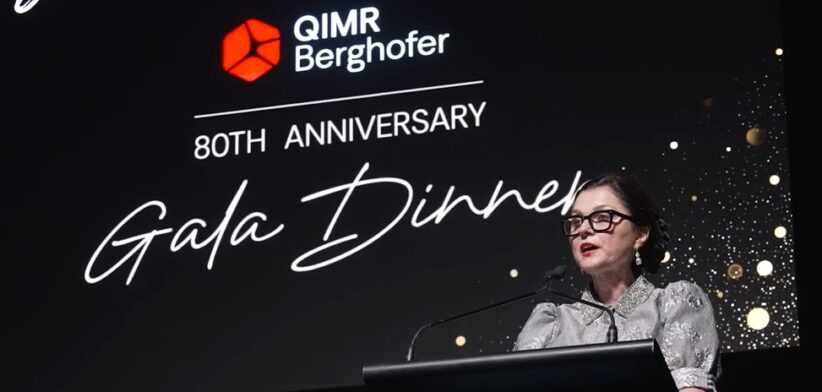QIMR Berghofer scientists swapped their lab coats for black ties to mark 80 years of medical research at the Queensland institute.
QIMR Berghofer Council Chair Professor Arun Sharma said nearly 500 guests attended a gala celebration at Brisbane’s Royal International Convention Centre Saturday night (November 1), which raised $1 million in funds that would go directly to supporting the centre’s research.
Professor Sharma said the event was held exactly 80 years to the day, in 1945, that the Bill to establish a Queensland Institute of Medical Research was granted Royal Assent and became an Act of Parliament.
“80 years of discovery would not be possible without the remarkable support QIMR Berghofer has received over the decades,” he said.
Professor Sharma said Toowoomba businessman Clive Berghofer was among the guests to mark the historic milestone.
He said the Institute was named in his honour in recognition of his extraordinary philanthropic donations since 2001 which had played a pivotal role in shaping the QIMR Berghofer of today.
QIMR Berghofer was born out of a need to investigate the strange tropical and infectious fevers and diseases causing suffering among the population of northern Australia in the first half of the 20th century.
It started with a staff of seven in a former WWII army hut in Victoria Park/Barrambin, but now has more than 1000 scientists, staff and students working out of state-of-the-art facilities on a diverse range of health problems including cancers, heart disease, autoimmune diseases, infectious diseases, and brain and mental health conditions.
QIMR Berghofer Director and CEO Professor Fabienne Mackay said from those humble beginnings, the Institute was now recognised globally.
“The pioneering spirit and dedication of QIMR Berghofer’s researchers and support staff have delivered so many advances over the past 80 years,” Professor Mackay said.
“From discovering Ross River virus, to showing daily sunscreen use can prevent skin cancers including deadly melanoma, finding genes that cause disease and mental health conditions, and advancing knowledge of cancers and other diseases that have led to new treatments.
“This 80th anniversary is an important opportunity to reflect on this legacy, but also celebrate the work that continues in QIMR Berghofer’s laboratories each day,” she said.








